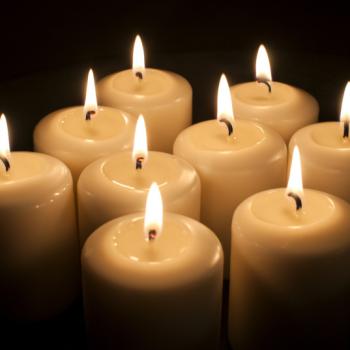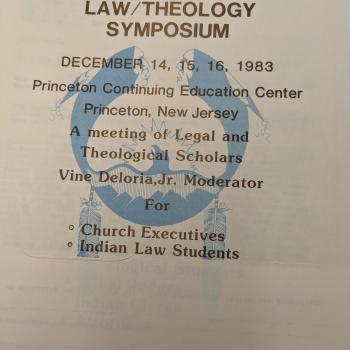A group of Palestinian kids in Gaza huddles around a phone screen. Their beaming smiles contrast with the utter destruction surrounding them. But they are transfixed by a just-released music video by an American rapper from Seattle, Washington, protesting Israel’s war on Gaza. The song calls for a ceasefire and invokes the name and story of Hind Rajab, a six-year old Palestinian girl from the Tel al-Hawa neighborhood of Gaza City.
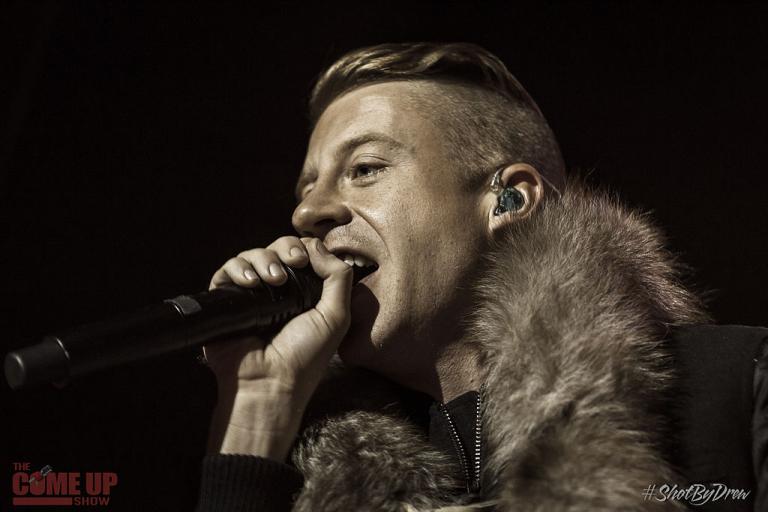
The story of Hind’s death still haunts me. I remember waking up in January to a social media post with the audio of Hind’s desperate voice just before she was killed. After surviving a tank firing on her family’s car, which killed six of the relatives with her, her cousin in the car with her called emergency services. In the recording, her cousin pleads for help, but is interrupted by the sound of machine gun fire cutting through the car. Her cousin’s voice goes silent, and little later Hind can be heard crying for help. “I’m so scared, please come. Come take me. Please, will you come?” she pleaded. Later, her lifeless body was recovered, along with the bodies of paramedics who tried to come rescue her but were also killed by Israeli forces.
As that group of kids in Gaza watch Macklemore’s protest song, they are asked by a reporter what they like about it. And they exclaim, “We thought no one was standing with us, but he shares the story of our situation.” Regardless of the various critiques about the timing and centering of US political issues in Macklemore’s protest song, he did something many evangelical Christians have struggled to do: He spoke about Palestinian people’s suffering.
The current situation in Gaza is horrifying. The war Israel wages on Gaza is a reaction to Hamas’s attack and massacre of Israelis on 7 October 2023, itself a war crime and a crime against humanity. Hamas’s massacre of Israelis was carried out in the context of a long-standing conflict, tracing back to either 1948, or 1947, or 1917, when efforts to create a Jewish majority nation-state resorted to systematically depriving Arab Palestinians of their land, possessions, and property, and subsequently establishing political and military domination over what remains. In the last 8 months, Israel’s disproportionate retaliation has killed more than 36,000 people in Gaza (not to mention more than 500 killed in the West Bank). They have destroyed or badly damaged 60% of residential buildings, 80% of all commercial buildings, 73% of schools, and some of the oldest churches in the world. The scale of this destruction is backgrounded by Israel’s 16-year long siege on Gaza, which, combined with current events, exhibits a more dismaying agenda.
As the war continues unabated, the severity of what is happening in Gaza has alarmed many experts who have said Israel’s war qualifies as genocide. In January, South Africa filed a complaint to the International Court of Justice (ICJ) contending Israeli government’s actions demonstrate “genocidal intent” in its war on Gaza. The ICJ’s ruling found it “plausible that Israel’s acts [in Gaza] could amount to genocide,” and ordered Israel to immediately take action to prevent killing and harming Palestinian people until the court could further the investigation.
The devastation has sparked government inquiries, political positioning, and popular protests. Everyone is talking about it. And inevitably, evangelical Christians are caught up in questions about culpability. Following the October 7 attack by Hamas, leading evangelicals in the U.S. context spoke up about their unwavering support for Israel. But in the weeks that followed, fewer have spoken about Palestinian suffering following Israel’s retaliation. Various elements of evangelical theology – from eschatology, to a theology of power, to hermeneutics – undergird this support for Israel. Many evangelicals, however, have found it more difficult to speak. In view of deep political and ideological differences, and subsequent protests, riots, and extreme social media proclamations, many Christian leaders and institutions may find themselves reticent to speak publicly to name the dehumanization and root causes that are causing such horrific suffering.
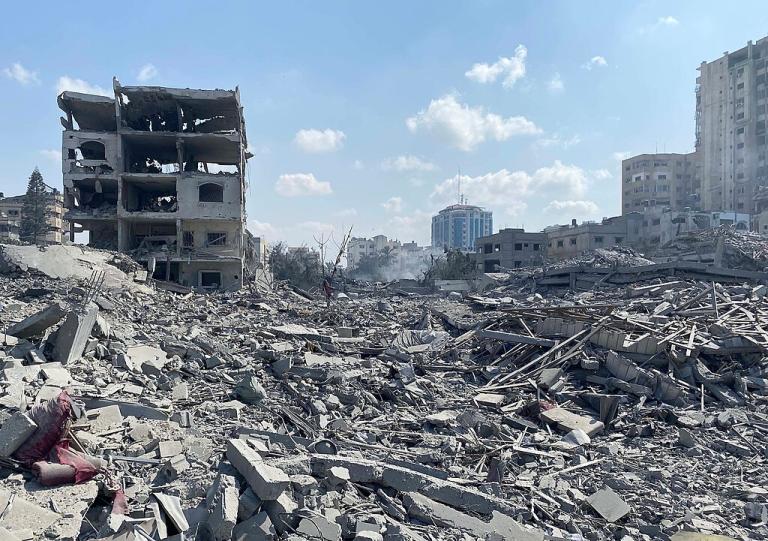
The idea that remaining silent in the face of injustice equates to complicity has gained widespread acceptance, often attributed to figures like Martin Luther King, Jr., Dietrich Bonhoeffer, and Martin Niemöller. As rhetoric, it is powerful and clear. But is it right? Given the countless injustices in the world, human limitations mean that most of us will inevitably stay silent about the majority of them. Yet not speaking about any one of the countless injustices that seem unrelated to you is not the same as keeping quiet about one happening under your nose. Recognizing our limitations should not excuse inaction.
Yet given the reactive social media activism and caustic divisiveness in political talk these days, is the silence-is-complicity formula itself a form of violence, used to bully and coerce? What of remaining silent? Might silence be innocuous, a quiet defense from being drawn into the mire?
Looking to recent history can be instructive for us. In the aftermath of some of the more well-known genocides in the 20th century, many people have struggled with the complicity of various actors in the carnage, including churches and church leadership. Historians of these genocides point out the significant challenge of evaluating the silence of a person or a group. They point out how bystanders to atrocities in which they have no part can be located on a wide spectrum between passivity and activity.[1] And during the events, individuals and groups often begin in one place on the spectrum and move to another. That movement complicates evaluating of culpability related inaction. That said, hindsight does clarify some things, especially for those involved as they look back.
In the 1994 genocide of ethnic Tutsi in Rwanda, many churches and church leadership responded either by remaining silent or by actively making ethnic violence seem understandable and acceptable to their people. Timothy Longman’s research drawing on post-genocide reflections by those church leaders draws out how both kinds of responses were driven by their desire to protect their own interests and power. They themselves drew parallels regarding culpability.
Fifty years previously, a German Christian and Lutheran pastor named Martin Niemöller wrestled with his own guilt and complicity with the rise of Nazism and the genocide against Jews. In 1936, Niemöller was also a German nationalist and Nazi supporter, who later came into conflict with the Nazis over their interference in church affairs (note the role of power, here too), leading to his imprisonment from 1938, for the duration of the war. His analysis of his own hesitancy to “speak out” against Nazi persecution of Jews became the subject of numerous speeches he gave, which has now become a classic admission of silent inaction. Yet, during the genocide, he and other German Protestant leaders only found their voices when the Nazis began interfering in their church affairs.
Several observations occur to me when I look back at these historical situations. First, the reasons motivating silence do seem complex when considered from the perspective of those faced with the decision at the time. The extent to which any individual or groups inaction or actions are actively known to “cause harm” to those who are suffering may not be evident to them in the moment. Second, those bystanders who chose inactivity recognized, in retrospect, the ways in which speaking up would have been the right thing to do. Their complicity of silence was a confession: We failed by not doing.
The common wisdom held in the idea that silence is complicity, I believe, is just that…proverbial advice. Not a rule to judge, bully, or coerce. But a general truth and counsel from those with experience. The right time to speak up against injustice, they tell us, is sooner rather than later.
In the decades following both the Jewish Holocaust and genocide against the Tutsi, various churches and Christian leaders responded to their complicity with confessions, followed by resolutions, about how they sought to do better at maintaining Christian witness the next time they face conditions of escalating dehumanization, injustice, and large-scale atrocities.[2] These resolutions and public statements stress the importance of refusing a stance of neutrality and inaction. Their resolutions are full of suggestions for productive action—beyond the online articles, tweets, and shares that are the norm in the age of social media—that are instructive for Christian leaders and institutions who find themselves unsure of how to respond as bystanders and witnesses from a distance, such as:
- Organizing corporate prayers of confession and intercession related to the situation
- Writing individual and corporate notes or letters of concern to affected communities
- Calling affected communities to listen, pray with, and bear witness to their suffering
- Serving, listening to, and bearing witness across divisions and barriers
- Remembering, identifying, and naming the injustices and suffering in sermons, liturgical prayers, and times of corporate gathering
- Providing forums for education and discussion of root causes of the conflict
- Seeking relationship with affected communities to learn from and about one another
- Raising awareness and advocating for those who suffer with one’s political representatives where that is possible
- Organizing as churches to host forcibly displaced people, advocating for them in asylum claims
- Training Christian leaders to be aware, draw attention to, and resist, the subtle ways that dehumanizing language, attitudes, practices slip into the life and outlook of churches
What becomes clear when we look at history is that we expose ourselves to all kinds of risks when we fail to identify and speak out against injustice, especially when it is wrapped in the language of divine justification. Christian leaders and institutions who want to follow in the way of Jesus should listen to how communities that have been marginalized by U.S. evangelicalism have said about the silence about oppression. “Theology’s great sin,” is what Black liberation theologian James Cone calls it. Likewise, Munther Isaac, a Palestinian theologian and pastor in Bethlehem, has challenged the theology of neutrality and inaction that remains silent out of fear of jeopardizing their own interests.
Certainly, speaking up involves risks, whether through coming into conflict with state authorities or nationalist political trends, or offending donors or partner organizations. But by keeping silent, we risk the very heart of Christian mission. Regardless of whether these small acts of “speaking up” seem productive on a large scale, the alternative negates our role as agents of God’s mercy, healing, and peace in the smallness of our churches and communities. Silence risks planting in our communities the seeds of believing that systems and structures of oppression are acceptable to God.
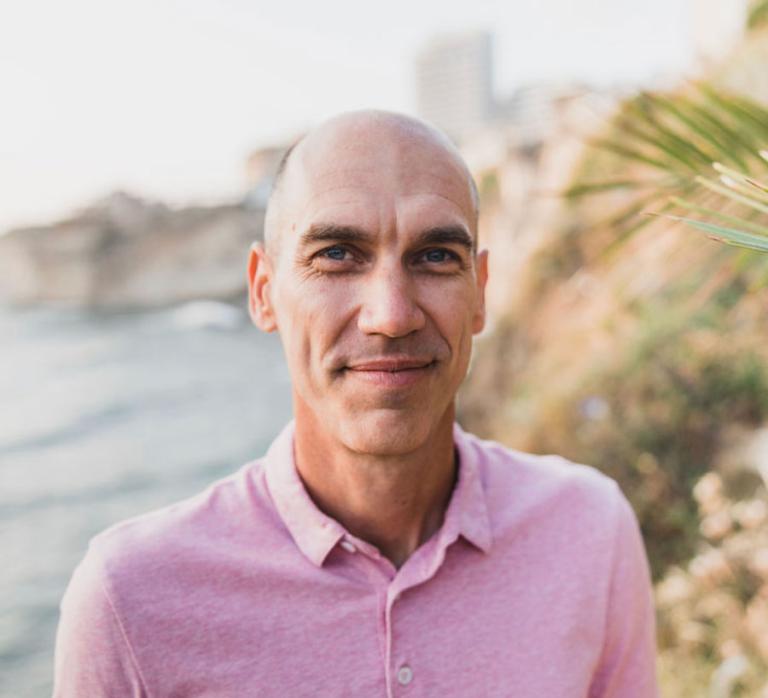 Caleb Hutcherson is an Assistant Professorof Historical and Theological Studies at the Arab Baptist Theological Seminary, where he teaches students from across the Middle East and North Africa region. He also serves in various leadership roles in the humanitarian and development sectors. Caleb and his family have lived in Beirut, Lebanon since 2008. He holds a ThM from Dallas Theological Seminary (Historical Theology/Intercultural Studies) and a PhD from Vrije Universiteit Amsterdam (Practical Theology). His research interests engage with issues relating to faith and everyday life for Arab Christians, exploring questions that relate to theology, cultural practice, and social and humanitarian issues. You can follow Caleb on Twitter @8aleb_l7aj7asan (his Arabic nickname).
Caleb Hutcherson is an Assistant Professorof Historical and Theological Studies at the Arab Baptist Theological Seminary, where he teaches students from across the Middle East and North Africa region. He also serves in various leadership roles in the humanitarian and development sectors. Caleb and his family have lived in Beirut, Lebanon since 2008. He holds a ThM from Dallas Theological Seminary (Historical Theology/Intercultural Studies) and a PhD from Vrije Universiteit Amsterdam (Practical Theology). His research interests engage with issues relating to faith and everyday life for Arab Christians, exploring questions that relate to theology, cultural practice, and social and humanitarian issues. You can follow Caleb on Twitter @8aleb_l7aj7asan (his Arabic nickname).
[1] Lee Spitzer, Baptists, Jews, and the Holocaust: The Hand of Sincere Friendship. Judson Press: 2017.
[2] See “Reconciliation as the Mission of God: Faithful Christian Witness in a World of Destructive Conflicts.” Lausanne, Occasional Paper no.51 (2004), available in pdf; and, Lee Spitzer, “The Hand of Sincere Friendship: The Responses of Baptists in the United States to Nazi Anti-Semitism and the Persecution of the Jewish People, 1933-1948.” PhD thesis, Vrije Universiteit, 2016. http://dare.ubvu.vu.nl/handle/1871/54564, p460-489.




